
Search for Death Records in New Jersey
Free New Jersey Death Records Lookup

We receive referral fees from partners (advertising disclosure)
The information we provide you is free of charge and a result of extensive research by our product experts. We use affiliate links in our site that provide us with referral commissions. While this fact may not influence the information we provide, it may affect the positioning of this information.


While our comprehensive reference to death records in the state of New Jersey will aid you in your search for deceased individuals and their lives, our comprehensive reference to death records in the state of New Jersey will also provide you with important information about the deceased and their lives.
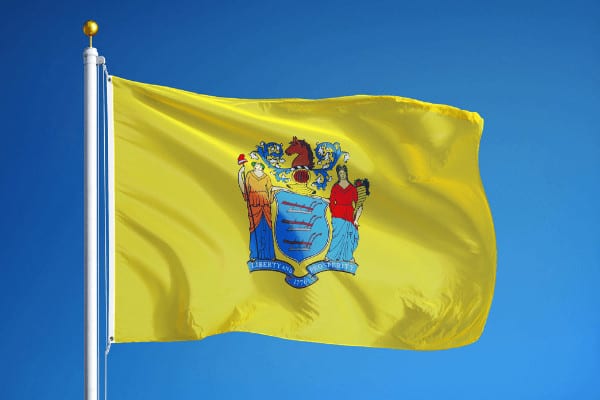
Death Records in New Jersey -
The Ultimate Guide 2025
- UPDATED January 2025
New Jersey Death Records
The registration of deaths on a statewide basis began in 1848, and some earlier records have been culled from various other sources. All records dating back to 1911 are housed in the New Jersey State Archives. Death records have been kept at the New Jersey Office of Vital Statistics since 1912 and are available online. Additionally, the Local Registrars for particular counties have data dating back to 1848. Many of the documents before to 1910, however, are no longer in existence.
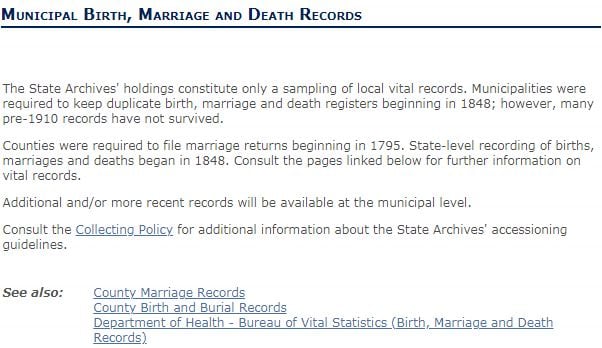
New Jersey Death Databases

Before 1848
The registration of deaths on a statewide basis began in 1848, and some earlier records have been culled from various other sources. Try the following databases to see if there are any fatalities that occurred during that time period. Only name indexes are available in the New Jersey death records databases. There are free name indexes to burial and death records from New Jersey between 1720 and 1988 available on the website Familysearch.org. The Ancestry Institution at the family search center may be accessed through the ancestry database, which can be found on the website.
From 1912 to date
The New Jersey State Office of Vital Statistics has death records dating back to 1912 and is still in operation today. Additionally, the Local Registrars for particular counties have data dating back to 1848. Many of the documents before 1910, however, are no longer in existence. For fatalities that occurred more than 40 years ago, informational copies of death records are available for genealogical research. In order to obtain a copy of a death record for someone who died less than 40 years ago, you must present documentation of your link to the deceased.
Death Certificates in New Jersey
Death records in the state of New Jersey are initially only available to the public 75 years after the date on which the record was filed, after which they become publicly available. Individuals who have passed away within the last 75 years are subject to certain restrictions when acquiring death certificates. There are several categories of people who are qualified to request a death certificate, as listed below:
- A registrant with whom the record is associated with
- Spouse
- Parents
- A descendant such as child / grandchild
- An individual with common ancestry (relative such as cousin, aunt, uncle, sibling or grandparent)
- Registrant’s legal guardian
- Agency / individual acting on the registrant’s behalf
- Legal representative to registrant’s estate
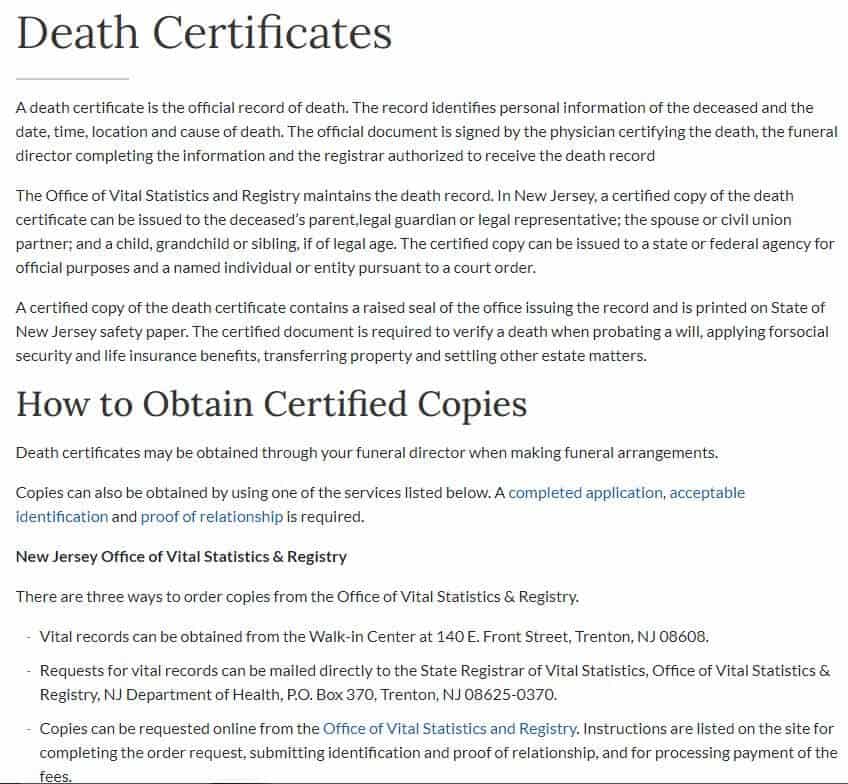
How to Find New Jersey Death Records
In order to obtain New Jersey death records, the most trusted option is to do so through the services provided by Archives.com. As soon as you connect onto the platform after completing the registration process, you will have complete access to the death data for the state of New Jersey, regardless of when you registered. To get you started, here are a few easy actions you may take:
Step 1: Visit Archives.com and sign in using your email address and password.
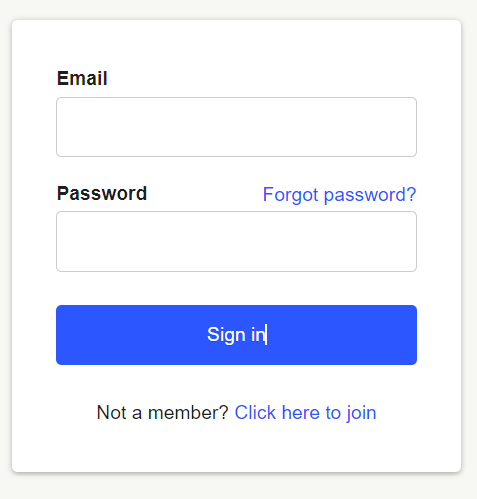
Step 2: Make use of the buttons at the very top of the user page to navigate through the options. When you click on the “Search” button, the New Jersey state death records page is loaded.

Step 3: Click on “Vital Records,” then select the “Death” button just below it. Thus, the site eliminates all other records and only displays death records, which you can then download.
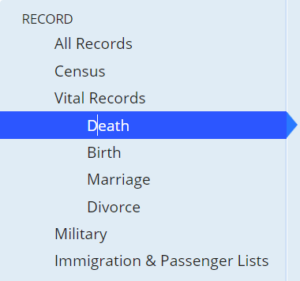
Step 4: Key in the deceased individual’s details.

Step 5: Type in New Jersey under the Locations section.
Step 6: You will be presented with a list of records; you will need to scroll through the list until you find the person whose records you are interested in viewing.
Alternative Sources for New Jersey Death Information
- Resourceful websites
- Obituaries
- Courthouses
- City Directories
- Tax Records
New Jersey Death Records FAQs
What is an Official Death Certificate?
An official death certificate refers to a death certificate that is issued directly by the New Jersey state government or any similar organization. This document contains information such as the individual’s name, physical address, date of birth, and date of death.
What are death records?
Death records are official files that give any useful information about a deceased individual. If you’re doing genealogical research, these records come in handy as they contain most of the information you’d need to learn more about your ancestry. Most death records are held by the state the deceased lived or died in, but they lack the burial state of the deceased. Both cemeteries and churches hold death records, as with state governments. Information you can obtain from death records includes the full name, date of birth, date of death, and place of death.
Are New Jersey Death Records Open to the Public?
According to the New Jersey Revised Statutes, vital records such as birth records, divorce records, marriage records, adoption records, death records, and other life records are available to all eligible parties with a direct relationship to the person named on the record.
What Information Do I Need to Search for New Jersey Death Records Online?
Requesters who wish to get a hold of a death record must be well acquainted with basic facts associated with it including:
- Deceased’s name
- Valid reason for death record request
- Death date
- County or city of death
- Valid proof of identification
Conclusion
The state of New Jersey is extremely particular about the accuracy of its tax and voting records, and this is reflected in its state records. As a result, they strive to keep a comprehensive death record up to date. Following the death of a person, tax collectors contact family members or next of kin to collect any unpaid state taxes that may be owed to the state. In the event of a probate proceeding, these death records will be extremely useful because your family members or next of kin will not have any difficulties in obtaining any legal information. With our comprehensive guide to New Jersey death record searches, you’ll be able to locate any type of record that you might require in a matter of minutes.
Disclaimer: OurPublicRecords mission is to give people easy and affordable access to public record information, but OurPublicRecords does not provide private investigator services or consumer reports, and is not a consumer reporting agency per the Fair Credit Reporting Act. You may not use our site or service or the information provided to make decisions about employment, admission, consumer credit, insurance, tenant screening, or any other purpose that would require FCRA compliance.

Copyright © 2025 · OurPublicRecords.org · All Rights Reserved